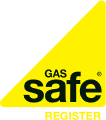Gas Safety in your commercial kitchen
Businesses operating gas-powered commercial catering equipment have a duty to ensure that their appliances and the ventilation/extract system are adequately maintained and operating in a safe condition. Gas appliance/installation safety is very important – an escape of gas or carbon monoxide from a faulty appliance or faulty, Inadequate ventilation/extract system can lead to a dangerous situation for you, your catering staff and potentially members of the public.
Your duty as an Employer
The law places duties on the responsible person (employer) at any place of work to ensure that any gas appliance, installation pipe work or flue under their control, is maintained in a safe condition to prevent risk of injury.
- The Gas Safety (Installation & Use) Regulations 1998 (GSIUR)- Regulation 35
- The Workplace (Health, Safety and Welfare) Regulations 1992
These Regulations require employers to provide effective and suitable ventilation in every enclosed workplace. This is particularly important in Commercial Catering, where significant amounts fumes, vapours and heat are produced from the cooking process. The ventilation/ canopy system will be designed and installed by a Heating and Ventilation specialist to ensure safe removal of products from cooking process and create a safe comfortable work environment. New and updated ventilation systems are required to be interlocked with the gas supply and built-in safety devices will prevent the cooking equipment from being used if the ventilation fails to operate. This links into the requirement of GSIUR Regulation 35 where the extract canopy is acting as a flue.
How can you do this?
This means you need to ensure gas equipment and extraction, ventilation system in a commercial kitchen is installed, commissioned, adequately maintained including checks for safe operation and is carried out on an annual basis, by an appropriately qualified Gas Safe Registered engineer.
Find an engineer or check the register
As part of routine maintenance, a Commercial Catering Engineer will carry out relevant safety checks on the individual catering appliances and will carry out Air testing (measuring Carbon Dioxide levels) within the kitchen with the appliances and ventilation in full operation. This will ensure that ventilation is operating correctly and maintaining a safe working environment for catering staff. The engineer will also check the correct operation of the relevant built in safety devices of appliances and the ventilation system.
You may be required to provide evidence that this duty has/is being met. One way of achieving this is to retain records (electronic or paperwork) documenting the relevant completed safety checks of the gas installation, produced by an appropriately qualified Gas Safe registered engineer. All registered businesses have a registration number and all gas engineers employed by registered businesses are issued with an ID card indicating the gas work categories they are registered for.
What is ‘appropriately registered’?
You need to ensure that any work on a gas installation or appliance is only conducted by a Gas Safe registered engineer who is qualified to work on the type of gas supply you have as well as the type of gas appliances you have. These are specific qualifications that not all engineers have. For example, Commercial Catering;
- In a fish and chip shop the engineer must be registered to work on: Commercial/Catering / natural gas / fish & chip range
- For mobile catering vehicles the engineer must be registered to work on: Commercial/Mobile Catering / LPG and the type of appliance e.g., Commercial Catering Range Cookers LPG
Make sure you check the engineer’s qualifications
The onus is on you to ensure the engineer is competent to undertake the work you need them to do. If you have the name of an engineer, you can check what they are registered for by going to www.GasSafeRegister.co.uk or by telephoning Gas Safe Register freephone 0800 408 5500. They will be pleased to confirm a registration, and or check that the engineer is registered to work on the appliances and type of gas that you have.
Find an engineer or check the register
Action by Local Authorities
During an inspection by the Environmental Health Officer (EHO) you will likely be asked for evidence of the ongoing maintenance of the appliances. If the EHO does not receive evidence of ongoing maintenance or if there are any safety concerns the officer may serve a formal notice stating what actions must be taken to comply with the law.
Useful Downloads
-
Commercial Catering


